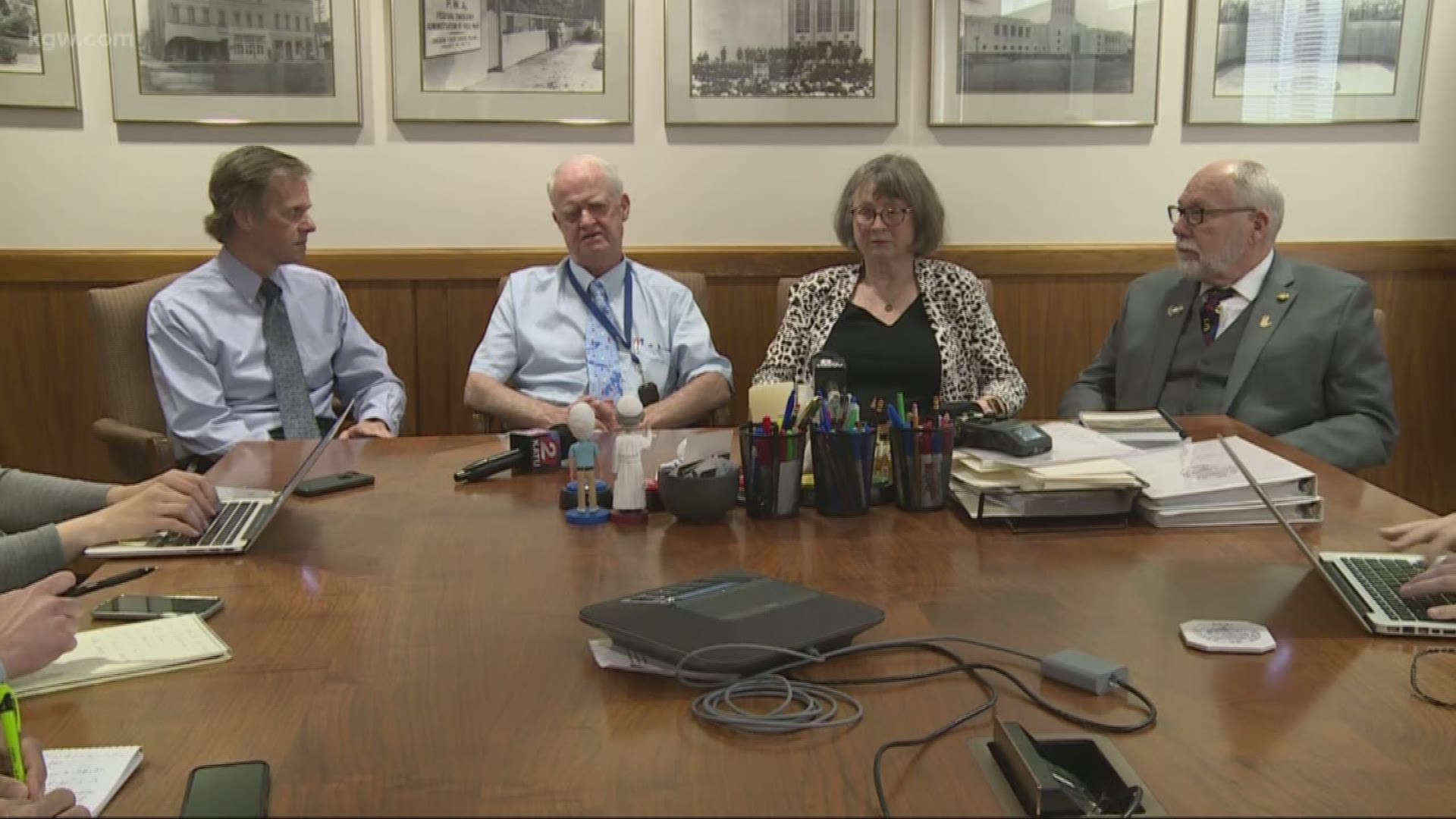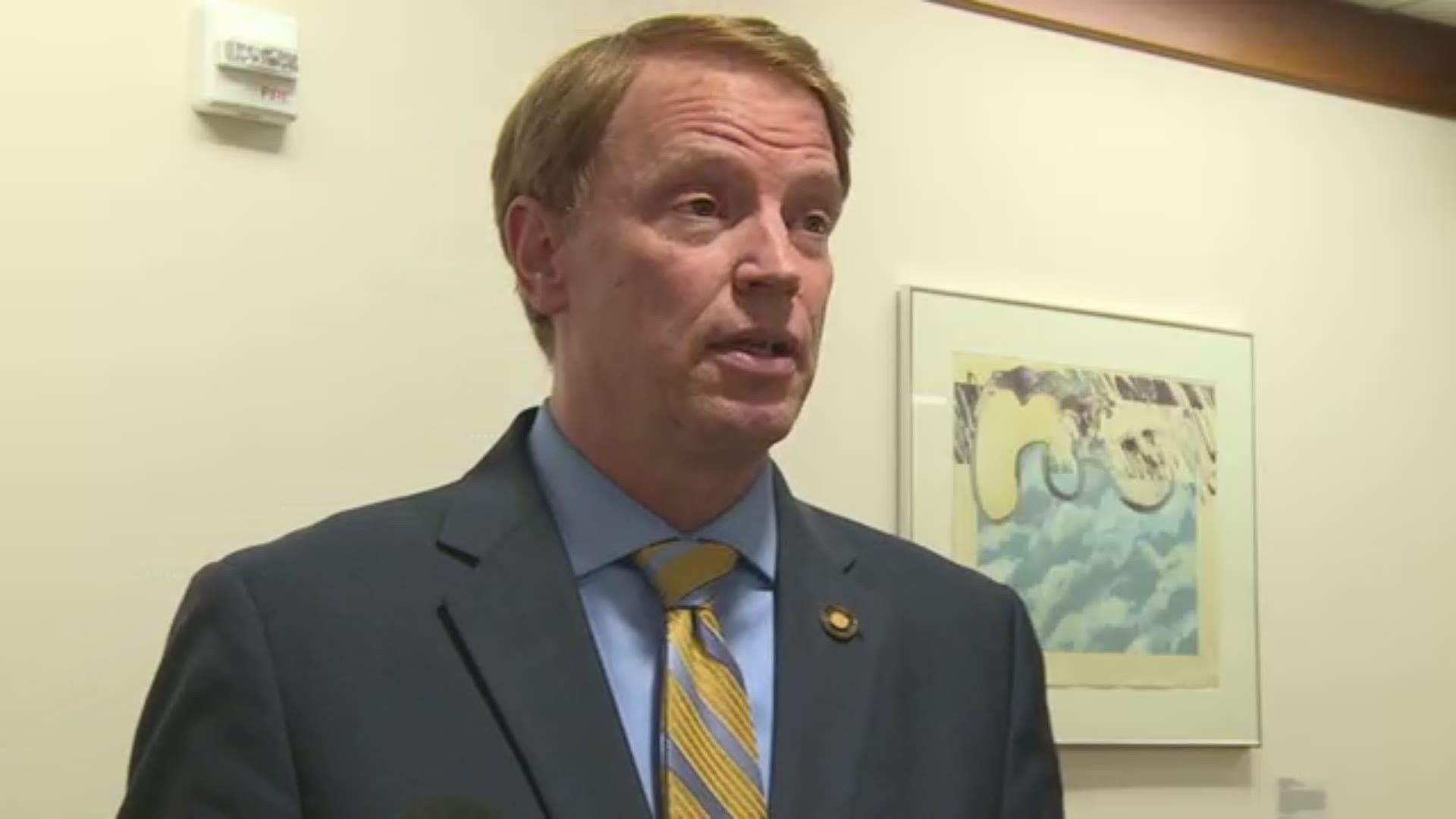SALEM, Ore. — Senate Republicans ended a weeklong walkout Monday and returned to the Oregon Capitol after the governor and Democratic leadership agreed to major concessions on some of the most high-profile bills this session.
Democrats scrapped bills on gun control and vaccines in exchange for Republicans' return to Senate.
Republicans returned to the Senate and the chamber was able to approve a $1 billion per year school funding tax by an 18-11 vote. It previously passed the House and now heads to Gov. Kate Brown for her signature. It would raise $1 billion per year through a half a percent tax on Oregon's wealthiest businesses via a 0.57% tax on gross receipts for businesses with $1 million or more in sales.
The agreement to move forward with the education tax vote marks a huge win for the Republican minority, which has remained largely powerless this session against a Democratic governor and legislative supermajority.
The vaccine measure, which was already approved by the House, would have ended families' ability to opt-out of school vaccination requirements for personal, philosophical or religious reasons. If passed, Oregon would have had one of the strongest vaccine laws in the country at a time when the national measles count has hit its highest in decades.
"This bill was about saving lives, protecting children and ensuring our shared immunity from dangerous and preventable diseases," said Rep. Cheri Helt, the Republican from Bend behind the vaccine proposal. "It's disappointing that once again the loudest, most extreme voices in our politics prevailed and the sensible-center and thoughtful policy-making lost."
Senate Majority Leader Ginny Burdick confirmed that Gov. Kate Brown was behind the agreement, which will also squash a gun control package that would have allowed businesses to raise the purchasing age to 21 and require gun owners to safely store their weapons. Burdick, who sponsored the proposal, said the tradeoff "was the right thing to do, but it was not my idea."
She said she will still work on gun reform in the future.
Senate President Peter Courtney said of the vaccine and gun measures "those were bills that we worked on and believed in, but it's just isn't going to happen and that's the way it goes."
The Democrat added: "We had a crisis of government shutdown on us. It could have gone on and on and on. It could have involved the state police. It would have been a nightmare."
Senate Republicans walked out May 6 to delay a vote on the multibillion dollar school funding tax. They said they refused to vote on any new funding for education without a solution to the state's increasing public pension debt.
The protest occurred the week of a massive statewide teacher walkout over classroom funding. Oregon pays far less per student compared to other states despite the fact that school funding takes up the largest portion of the state budget.
Senate Minority Leader Herman Baertschiger, Jr., refused to provide details of the agreement. But he hinted that negotiations may not be over, saying he didn't want to say anything that would "inflame those conversations."
"There's a lot of conversations going on on many different items," he said.
Education has been a major budgetary and legislative priority for Democrats this session.
Opponents said the tax will be passed onto consumers and that the state shouldn't increase funding without first addressing Oregon's spiraling pension debt.
Legislative leaders unveiled a pension plan last week that would shield employers from the impact of upcoming interest rate hikes, though it garnered significant opposition from unions.
Educators cheered the funding boost, which they say is sorely needed to combat years of cuts that have forced schools to slash staff and programs like arts, music and P.E.
"Many of us in Oregon have spent our entire adult lives waiting for the day we would fix our broken school funding model," Jim Green, executive director of the Oregon School Boards Association, in a statement. "That day is now on the horizon."


